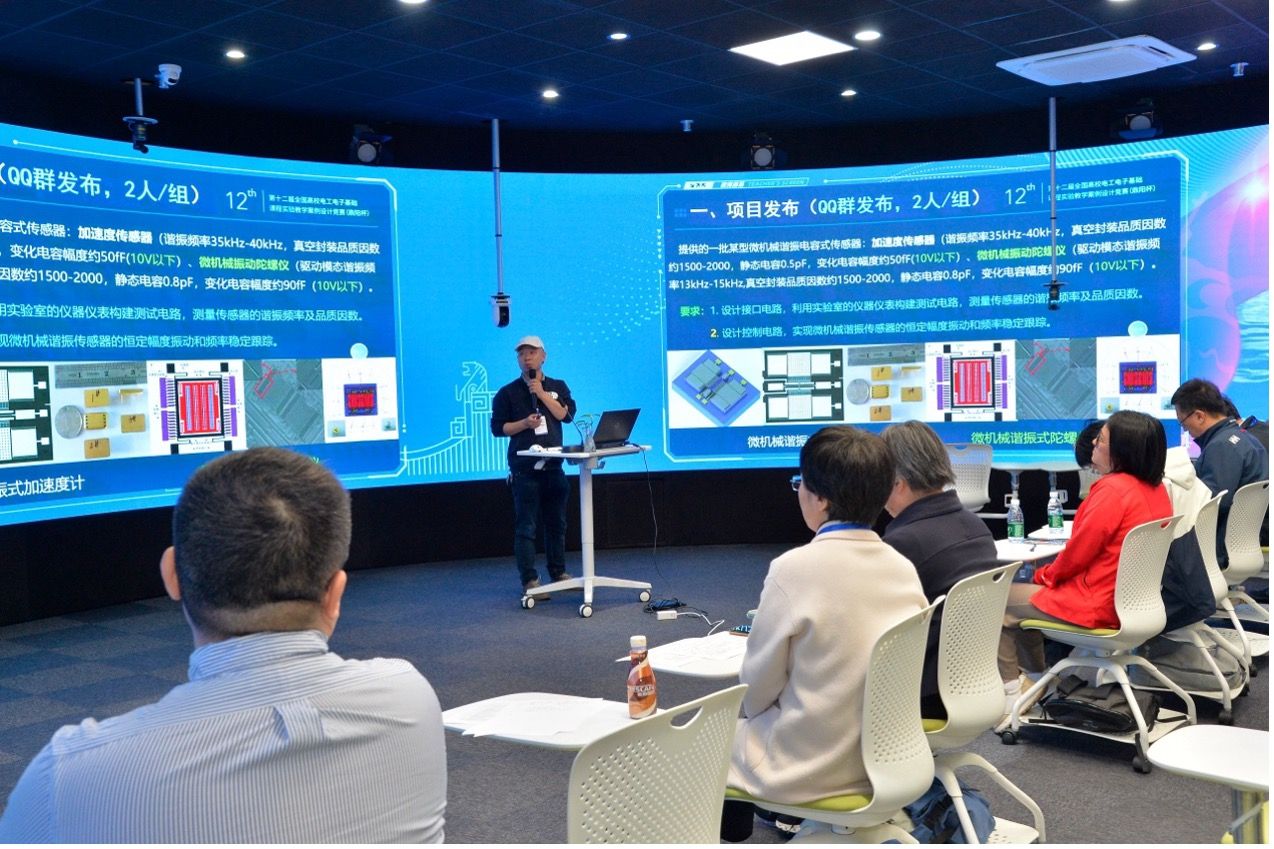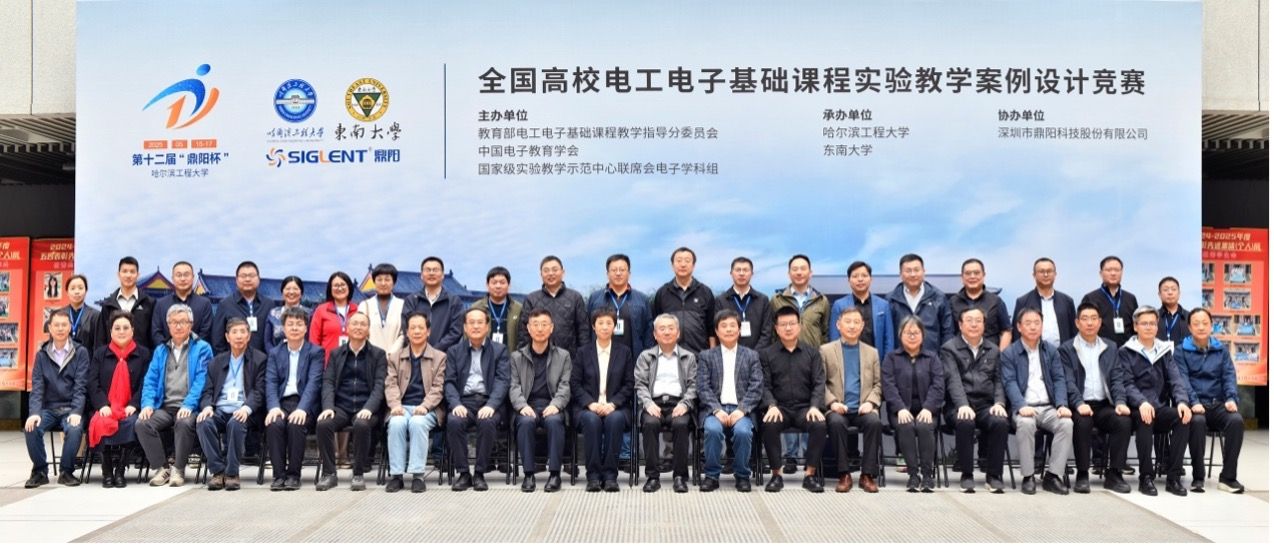
On May 17, the 2025 National Experimental Teaching Case Design Competition for Fundamental Electrical and Electronic Courses (Dingyang Cup) concluded at Harbin Engineering University(HEU). PAN Dapeng from the School of Information and Communication Engineering was awarded the prestigious Dingyang Cup - the competition's highest honor - for his innovative project Engineering Exploration of ADC Data Collection Fundamentals Experiment, marking HEU's first-ever top prize in this national event. Simultaneously, Prof. ZHANG Shujuan from the School of Underwater Acoustic Engineering secured a First Prize with the Best Teaching Award for her project Underwater Acoustic Remote Control Communication Device. The fiercely contested finals saw participation from 173 faculty teams representing 92 universities across 25 provinces, culminating in 36 First Prize, 52 Second Prize, and 84 Third Prize awards.

The competition was guided by the Sub-Committee of Fundamental Electrical and Electronic Courses under the Ministry of Education’s Higher Education Teaching Advisory Board, co-organized by the Chinese Electronic Education Society and the Electronic Discipline Group of the National Demonstration Center for Experimental Teaching, hosted by Harbin Engineering University, and co-sponsored by Shenzhen Dingyang Technology Co., Ltd. The event adopted a voluntary registration format, with preliminary rounds held across five regions: North China, Northern, Western, Central-Southern, and Eastern China. After intense competition, 682 entries from 226 universities across 29 provinces, municipalities, and autonomous regions were narrowed down to 173 projects advancing to the finals.
The National Experimental Teaching Case Design Competition for Fundamental Electrical and Electronic Courses (Dingyang Cup) was first held in 2014. It aims to promote the reform of experimental teaching content in electrical and electronic foundational courses through research exploration, engineering practice, and independent innovation. The competition also encourages the sharing of high-quality teaching resources among universities, inspires educators to innovate in experimental teaching, and enhances the overall quality and technical level of experimental instruction.

